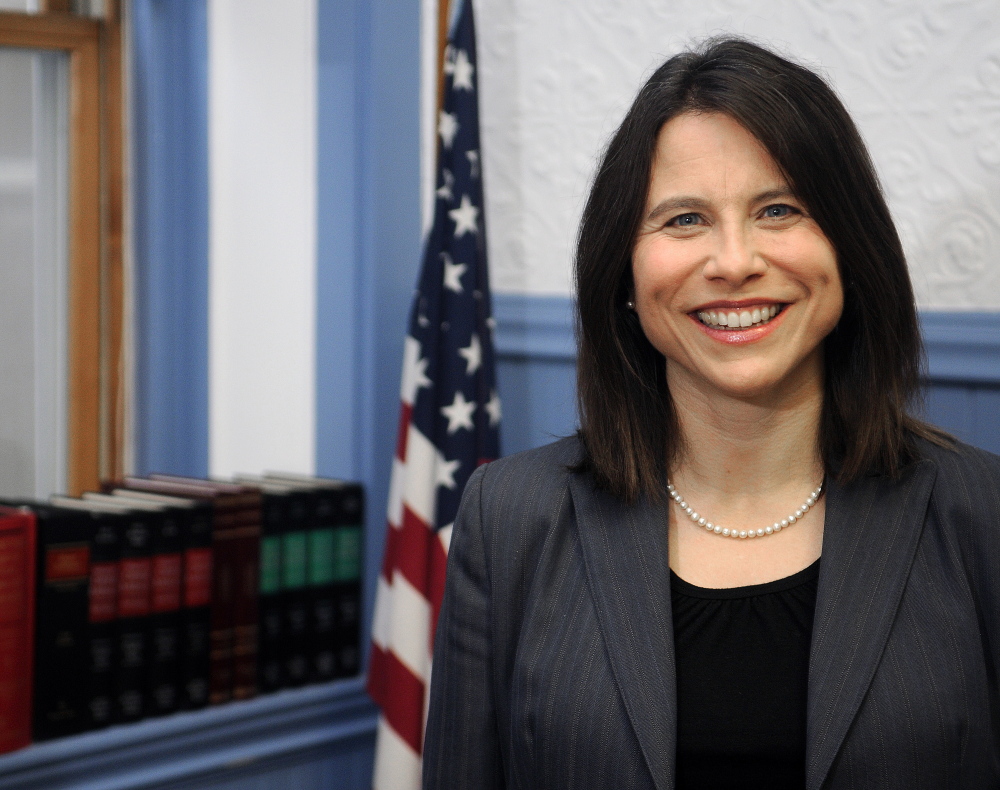AUGUSTA — More than 40 people discussed racism in Maine’s juvenile legal and correctional systems during a forum at the Holocaust and Human Rights Center of Maine in Augusta on Tuesday night.
The “Injustice in Justice” forum included several speakers, breakout sessions and group conversations in the hopes of coming up with tangible actions to be taken to combat systemic racism in the legal and correctional system in Maine.
The purpose of the forum was not just to look at and learn information about racism, but to see it, said Jerome Bennett, the disproportionate minority contact coordinator for the Maine Department of Corrections.
“We have to see it, because when we see, we don’t forget,” Bennett said.
A lot of the discussion centered on a 2015 University of Southern Maine study on disproportionate contact for youth of color with the state’s juvenile justice system. Data gathered for years up to 2012 showed that in Kennebec County, there were five instances of detention for youth of color for every two white detentions.
The study showed disproportionate contact in five of the six counties it could be measured — the other 10 counties don’t have enough cases to provide enough data. Penobscot County was the only county without any measurable disproportionate contact.
Kennebec and Somerset counties district attorney Maeghan Maloney said the results were shocking but accurate.
“We’ve been looking at how we can have a truly rehabilitative juvenile system,” Maloney said. “The focus of the change in the juvenile justice system has been a move to restorative justice, and the idea behind that is to connect youth to the community that they have become disconnected with.”
Restorative justice is defined as a system of criminal justice that focuses on the rehabilitation of offenders through reconciliation with victims and the community at large.
“We’ve had other programs that are unfortunately not growing due to lack of funding, including many of our after-school programs,” Maloney said. “It is devastating and very concerning to me because we know that these programs have been successful for youth. But we know that losing these programs will lead to increased cases in the juvenile justice system.”
Bennett said the discussion of racism and its factor in why youth of color find themselves in the criminal justice system is not an easy discussion to have, but he hopes forums like this could educate people and get them to, as he said, “pass the mic” to somebody else to keep the conversation moving toward reform.
“The subject of race makes people uncomfortable,” Bennett said.
A lot of times, Bennett said, youth of color don’t feel like they are engaging with people who really understand what they’re going through or can support them.
“When you are engaging with youth of color, it is important that you know and understand the disparities they are dealing with as a person of color.”
Bennett said trying to get systemic racism reform, which is hard enough, is made that much harder when there are people in power saying things that enflame certain stereotypes and mindsets.
“The kids that I work with hear it and get discouraged, and (the rhetoric) ends up justifying beliefs they already have, and it polarizes communities,” Bennett said. “It perpetuates implicit bias and stigmas that people are already trying to combat.”
The Rev. Chrissy Cataldo, of the United Church of Christ in Winthrop, helped plan the event, along with other religious leaders, Bennett and Rachel Talbot Ross of the NAACP, said she hopes this is the first of many forums on the subject of systemic racism.
“We’ve been looking for ways that we can be advocates to stop racism in the state of Maine, and we consider it part of our faith commitment,” Cataldo said. “The attack last week in Orlando reminds us of the work we have to do, and this seems to be a way to act and help other people.”
Jason Pafundi — 621-5663
Twitter: @jasonpafundiKJ
Send questions/comments to the editors.



